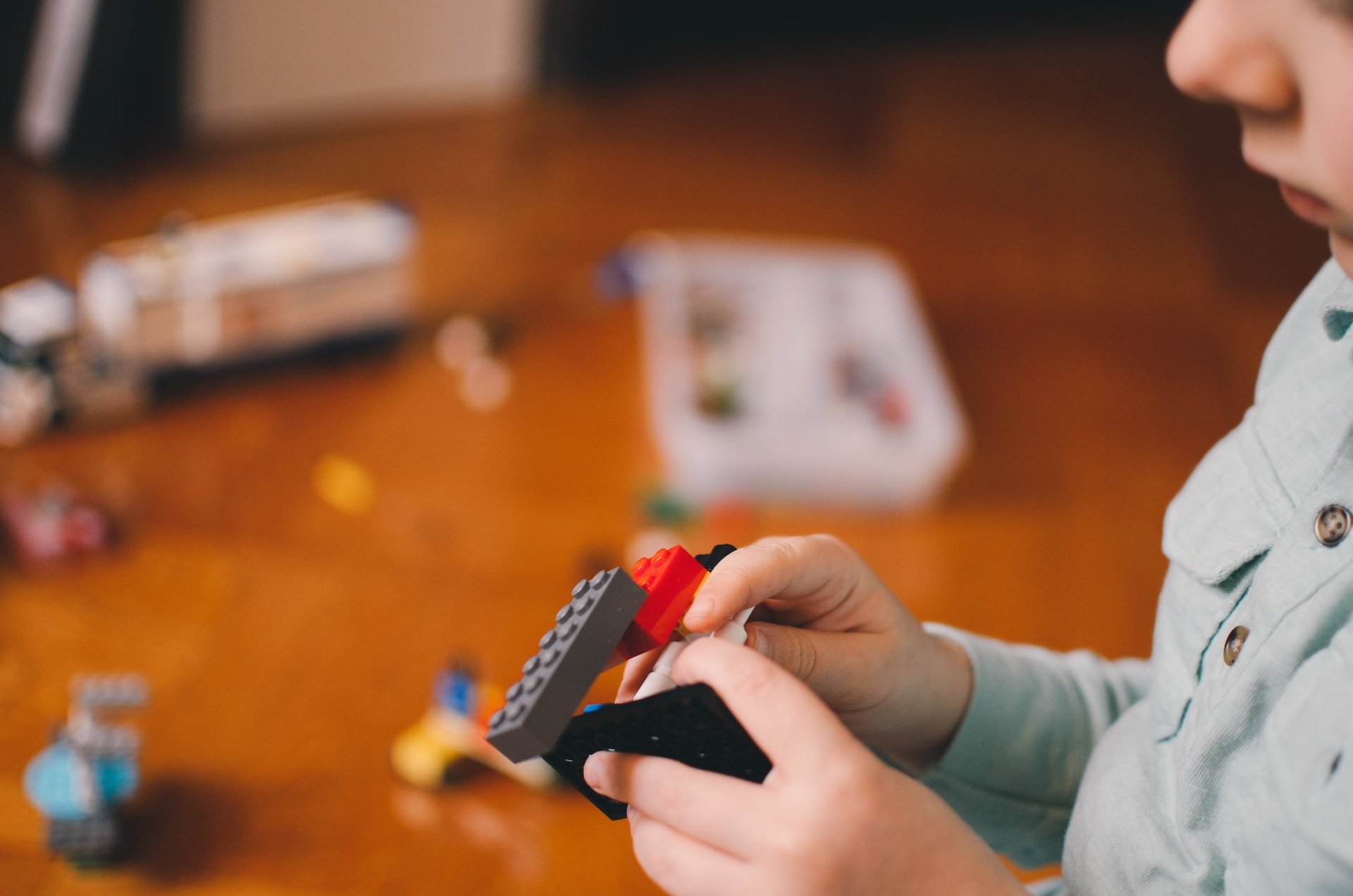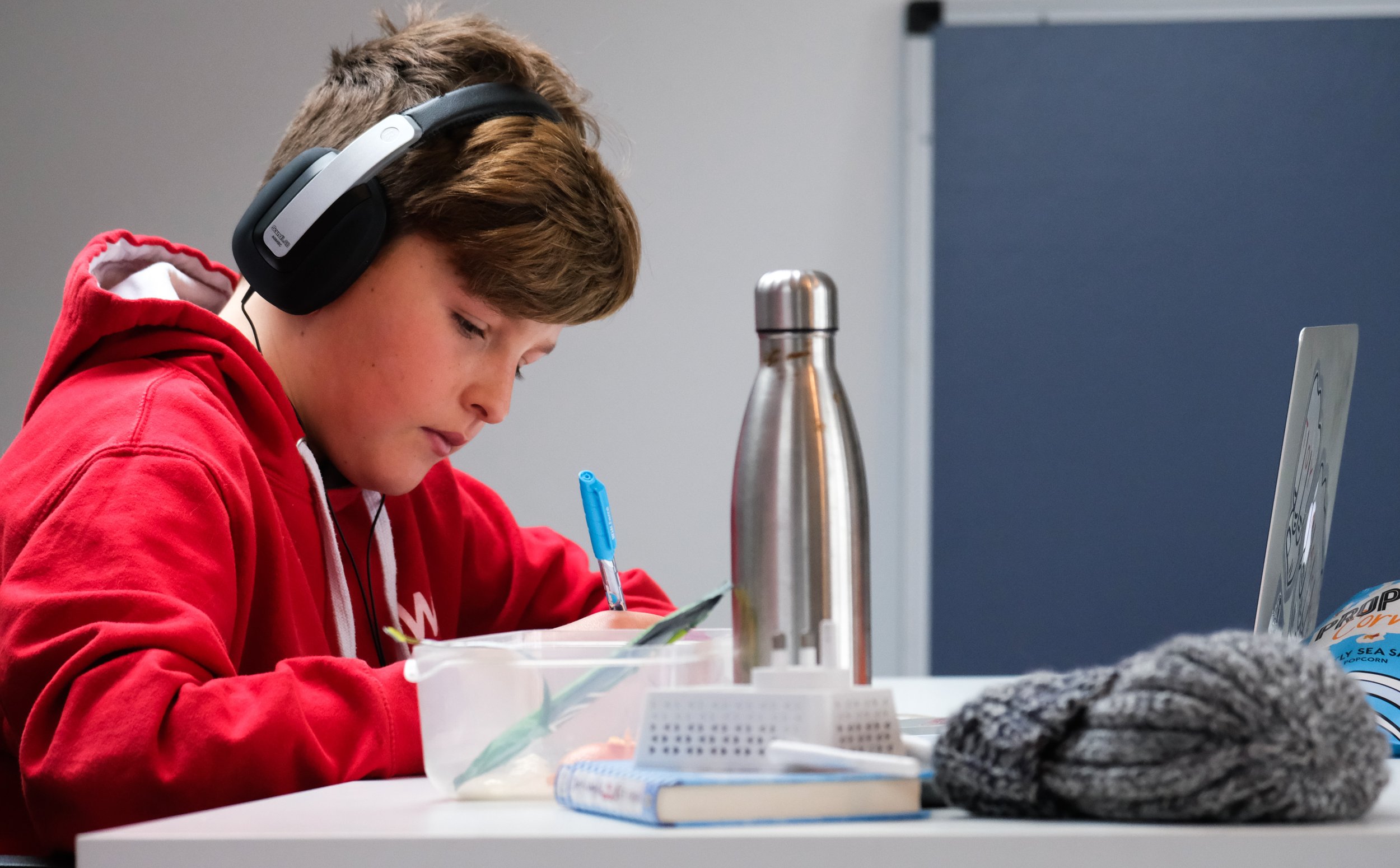
Strategies to Improve Working Memory in Children
Working Memory is part of your child’s short-term memory. It is the part of the brain that helps with briefly holding onto, working with, and prioritizing small bits of information. Children with weaker working memory skills (compared to their other strengths) can struggle or demonstrate inconsistencies with tasks that require them to hold onto information while also doing something else. For example, they may struggle with following through with your requested multi-step list of simple chores as they attempt to avoid the distraction of the T.V, play room, and dog while they run upstairs to complete them. In school, the child may make seemingly silly errors for a math calculation sequence despite their math problem solving strengths or have difficulties with listening to instruction while writing down notes. Without skill building or support, these children can be perceived as being avoidant, distracted, or not paying attention to even seemingly simple or routine requests/information. In reality, their brain is struggling to juggle, hold onto, fully complete, and/or recall what they were supposed to do. When children have uneven or weaker development of their working memory, which contributes to the “cognitive proficiency” part of the brain, it impacts their efficiency with executing tasks (and feeling competent/confident) despite their wonderful intellectual, academic, adaptive, interpersonal, and other strengths. In return, their brain may experience something called cognitive overload, which can impact their distress tolerance, coping, and problem solving during times when their working memory gets “too full.”

7 Tips to Ease the Back-To-School Transition
Blog post written by Shelley Mikszan, MS.Ed.
As we approach the end of summer, it’s a time filled with mixed emotions. There are often feelings of both excitement and anxiety about the coming school year. Whether you're returning to familiar halls or starting fresh in a new environment, being prepared can make all the difference. Here are a few tips to help you transition back into your school routine.

ADHD symptoms that impact Reading
Many children and adults with ADHD struggle with aspects of reading. While reading skills are essential for academic and learning success, not all children who struggle to read have reading disabilities or Dyslexia. Some of the most common reading difficulties that children with ADHD experience include: Difficulties with encoding and decoding, Phonological and Orthographic Processing, Rapid recall of site words, Reading fluency (including skipping over words, difficulties with pacing, whole word errors), Visual tracking (losing spot on the page)….

Working Memory Strategies for Children
While it is common to believe that most difficulties with reading, math, or other aspects of academic learning efficiency are solely linked to learning disabilities, such as Dyslexia or Dyscalculia, working memory weaknesses can be another common underlying reason for difficulties with word recall, fluency, math computation, and other aspects of school success.

Understanding Psychoeducational Testing Terms: Working Memory
Working Memory or “Short-Term Working Memory” skills are another common area assessed during your child’s comprehensive psychoeducational or neurodevelopmental evaluation. Working Memory is a different type of memory that is a part of our short-term memory. In fact, it can sometimes be interchangeable with short-term memory, even though they are not quite the same. Working Memory is a part of short-term memory that allows our brain to hold onto/work with small bits of information for a brief period of time. Think of it as our “Post-it” or “sticky note” brain. It is a brief holding tank that helps us hold new information so we can either work with it or connect it with other important information. It is your child’s mental sketchpad.

7 Tips to Ease Back to School Anxiety
While going back to school after summer break can be exciting for some students, others can struggle with anxiety when heading back for a new school year. This anxiety can be increasingly more present for students with pre-existing anxiety for change, separation, or school, as well as for students starting at a new school. Anxiety is a natural response for new or experienced transitions and can naturally fade for most students as the weeks and days go on. While natural, it can also be hard for a parent or caregiver to see your child in distress, particularly if you know they will either love or be “just fine” in their new class or school. The role of the parent or caregiver is to recognize signs of anxiety (this can look different for everyone), validate, and gradually prepare your child to lean into the anxiety to overcome it rather than avoid it. It is an innate response to want to prevent any distress or discomfort your child may experience, however, when supporting anxiety the message should be one of validation and letting them know that “yes, this is scary, and I am here to help you through it". While some children may need more direct or intentional skill building from a professional when it comes to coping with anxiety, here are seven tips to ease back-to-school anxiety so it does not grow into bigger fears, avoidance, or self-doubt.

How can I prepare my high school teen for college?
A Learning/Educational Specialist and Academic Coach can provide a completely personalized approach to the academic and college planning process that begins the day your teenager starts high school. We understand that the college planning process does not look the same for every student or family. Thus, a one-size-fits-all service is not always helpful. Here’s why…

Understanding Psychoeducational Testing Terms: Visual Spatial Skills
Visual Spatial Skills are yet another common cognitive area assessed during your child’s comprehensive psychoeducational or neurodevelopmental evaluation. Visual Spatial Processing is not necessarily how well your child “sees” things but rather their ability to identify, assess, and utilize visual information. Consider visual spatial skills your child’s “Lego” or “chart” brain. Think of it as your child’s ability to tell where objects are in space, including their own body. Visual Spatial Functioning captures your child’s ability to negotiate and think with visual or spatial information, such as charts, graphs, blocks, maps, and even athletic tasks! It’s greatest impact in school is with organization, sequencing, and any left-to-right shifting (e.g., reading, solving math problems, charting). Think of this as your child’s ability to not only utilize tangible (physical) items but also their ability to have general spatial awareness and orientation in their physical environment, such as sensing physical boundaries, transitioning between others, and negotiating small spaces.

Understanding Psychoeducational Testing Terms: Processing Speed
Processing Speed is another common cognitive area assessed during your child’s comprehensive psychoeducational or neurodevelopmental evaluation. There are several cognitive areas assessed during a comprehensive evaluation, including your child’s fluid reasoning, verbal comprehension, visual spatial, and short-term working memory skills. Processing speed is different than other areas assessed as it does not involve how “smart,” your child is. Rather, processing speed is a measure of how efficient your child’s brain can process and integrate information in their environment. Consider processing speed your child’s “efficiency” capacity with simple tasks.

Understanding Psychoeducational Testing Terms: Fluid Reasoning
Fluid Reasoning Skills are another common cognitive area assessed during your child’s comprehensive psychoeducational or neurodevelopmental evaluation. Fluid Reasoning skills are a foundational and important set of cognitive skills that aid in your child’s ability to problem solve with new information, process simultaneous information, and think abstractly or “outside the box.” Consider fluid reasoning your child’s “problem solving” capacity. Not only is it particularly relevant to nearly all aspects of your child’s academic, socio-emotional, and day-t0-day interactions, it also aids in their ability to find solutions and problem solve into adulthood.

Why do kids lie?
Most caregivers think that children lie in order to get something they want or to avoid something they don’t want (a consequence). While these are common motivations, there are many other reasons why a child or teen might bend, or straight-up make up, the truth. Not all early lying leads to unhealthy patterns of deviance and deceit, yet it is important to learn more about lies and ways to navigate them based on your child’s development.

Parent Tips For Back-to-School Anxiety
The start of a new school year can be anxiety inducing for caregivers too. There is the pressure for you to restart old routines, some of which you weren’t even sure worked in the first place, as well as the anticipation of new activities, schedules, and everyone’s favorite….homework. Children and teens are incredibly intuitive and can pick up on caregiver stress. If they are not sure where it is coming from, they may come up with their own explanations for it.

How to help your child talk about their learning differences in school
Ways to help your child become a strong advocate and build self-esteem: Helping students better understand and find language for their learning style is important. As you likely notice, children are incredibly intuitive and observant. Therefore, if they do not have a healthy or accurate understanding of their skills and needs, they come up with their own reasons for why aspects of school may be different or challenging (e.g., “I am a bad student”, “I am not smart”). Students with learning/neurodevelopmental disorders or differences, such as Dyslexia or Attention-Deficit/Hyperactivity Disorder, are at an increased risk of development of anxiety or depressive symptoms due to internalizing their learning differences as something negative or bad. This risk increases as the demands of school increase throughout middle and high school. It is not unusual for a child with learning or executive functioning weaknesses to display some anxiety regarding their performance in school or with their engagement in social settings, despite other cognitive, academic, and social strengths. This can be particularly relevant for students with social awareness who are able to interpret complex situations, yet struggle to regulate worry about their own behavior. As a parent or caregiver, it is an innate response to want to shield your child from discomfort, pain, or negative feelings. However, in school, they are naturally exposed to environments where they may observe differences or get feedback from peers or teachers. So what can you do for your child when they are out of your care? How can you help them become confident, emotionally resilient, and strong advocates?

What is PSYPACT and How Can it Support my Family?
Behind the Behavior Psychology is now able to serve families outside of the Carolinas. Dr. Carly Bobal is a licensed psychologist in the states of North and South Carolina. She is also a nationally certified school psychologist and the owner of Behind the Behavior Psychology, PLLC in Charlotte, NC. Dr. Bobal is now able to offer telehealth services to families outside of North and South Carolina through PSYPACT. Learn more about how BTB Psychology can help through PSYPACT…

Book and Activity List That Supports Child Behavior and Coping
Children’s books can be wonderful therapeutic and developmental tools to facilitate emotional growth, healing, behavior regulation, as well as discussion about important life topics. Best part? You can incorporate stories into your child’s regular day or night time routines and use books as a proactive catalyst for developmental change. Reading books with your child extends beyond the typical educational benefits, and actually supports emotion and behavior regulation in a relatable way that aligns with your child’s brain development. In a world filled with quick clicks, links, and videos, caregivers can utilize books to help children navigate, learn from, and cope with a variety of life circumstances.

How can I set limits on my child’s screen time?
Ask yourself- Is my child enjoying non-screen time activities, hobbies, or extracurriculars such as scouts, sports, music, art, etc.? Is my child keeping up with basic responsibilities in school and home? Is my child getting adequate sleep and exercise appropriate for their development? Is my child engaging in quality time with family and friends? Is my child responsive to current boundaries with phone/screen usage, such as no phones at dinner or during homework? While you are likely not alone in worrying about your child’s screen time, it can be hard to truly know how much is too much. Over the past several years, use of screens have infiltrated not only the leisure world, but also education, appointments, and everyday tasks. Therefore, it can be helpful to consider your child and family’s overall health and wellness when considering how much is too much.

What is Cognitive Overload?
Is your child struggling to complete homework, remain organized, or stay focused? Does this lead to increased frustration, avoidance, and parent/child conflict? Working memory is an aspect of our intellectual functioning and we need it to attend and respond to instructions, organize and recall our thoughts, and work with multiple bits of information at once. Think of working memory as our brains “sketch pad.” It is the place where we organize and work through tasks. Working memory is part of our executive functioning, which is the brain’s “control center.” Executive functioning develops over time and helps us juggle tasks, complete mental operations, and regulate our thoughts/behavior during tasks, especially non-desired tasks (cue homework!).

How can I support my child with homework?
If you would like to reduce homework hassles and help your child develop greater independence, it is time to take a look at current routines, or lack thereof. Homework completion can be a time of increased frustration, conflict, and dread for not only students, but also their caregivers. Undesired tasks like homework are easiest to accomplish when you stack them to existing routines. By establishing daily routines for homework completion, you can set yourself up to reduce the power struggle, all while providing structure, order, and predictability for your child. When established, routines help your child develop a greater sense of autonomy, which is important when homework expectations increase in high school and college.

What is Dyslexia?
Dyslexia is one of the most common learning disabilities. It is a neurodevelopmental disorder called a “Specific Learning Disorder.” This diagnosis can be individualized for children who struggle with reading (Dyslexia), writing, or math.. Young children with Dyslexia most observably struggle with reading new words, sounding out words, recalling or recognizing words they have learned, or struggle in other areas that involve letter recognition and usage, such as writing or spelling. There are several subtypes of Dyslexia, which help inform treatment and school support. Some children may struggle with individual word sounds, others may struggle more with the visual recognition or recall or letter/word symbols, or a combination of both.

What is Cognitive Behavioral Therapy?
Cognitive Behavioral Therapy (CBT), also referred to as Cognitive Behavior Therapy, is an evidence-based treatment for children, adolescents, and adults. CBT can be helpful for a range of mental and behavioral health concerns. For children, CBT can be effective for treating anxiety, depression, family conflict, problematic behaviors, as well as other mental health concerns that are impacting functioning in everyday life. CBT is based on the principle that psychological symptoms are based in part, on faulty or maladaptive ways of thinking (thoughts), unhelpful habits (behavior), and how these thoughts and behaviors impact our emotions/coping. In essence, CBT begins with psychoeducation about the role of thoughts, behaviors, and emotions, and how they impact our day-to-day interactions and coping. By teaching children about thoughts, behaviors, and emotions, they can develop greater emotional resiliency and cope with the inevitable stressors that come their way. Just like any skill, CBT principles can be taught developmentally and help children learn ways to cope in a healthy and safe manner.